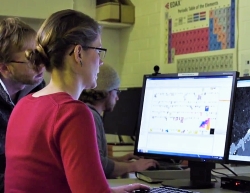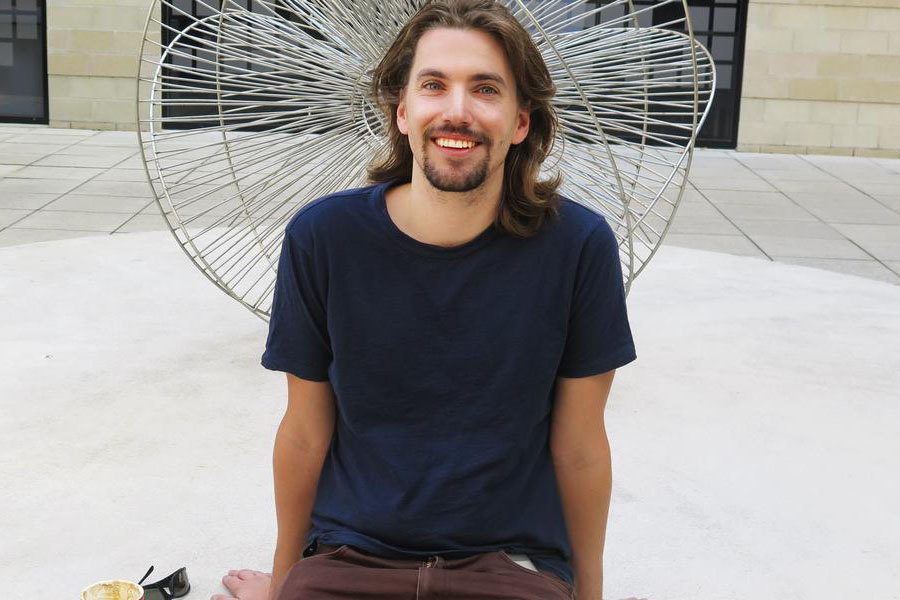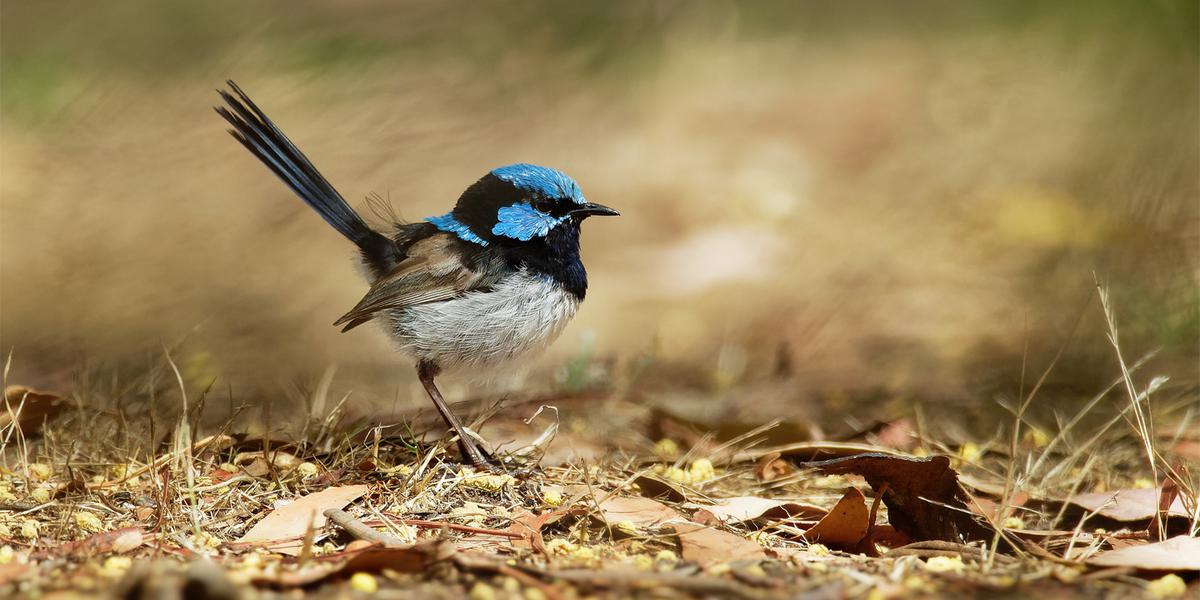Mathematics
Mathematics is the language that underpins technology, enables innovation, and describes all aspects of the natural world.
Studying mathematics provides fundamental skills in problem solving, modelling, analysis and research; it utilises the most modern computing technology combined with expertise developed over centuries.
Portable skills that can take you anywhere!
We offer a range of courses and research supervision in statistics, decision science (operations research), and pure and applied mathematics. Our units provide the concepts and tools to understand and tackle real-world problems: using calculus to model dynamical systems, algebra to understand structure and symmetry, and statistics to navigate our increasingly data-rich world.
We are a small but friendly group and pride ourselves on having an open-door policy where interactions between students and staff are always welcome. Our staff collaborate with international networks of researchers and host many visitors from around the globe. Keep an eye out for flyers announcing seminars and local conferences and if a talk looks interesting to you feel free to join in.
Making the most of your university experience
University is as much about the people you meet as the subjects you learn. Through the very active UTAS Maths and Physics Society (MAPS) you can get together with like-minded students, navigate the exciting challenges that come with undergraduate study, and make great friends along the way.
For more Information, please check out the society’s Facebook page, or stroll along the 3rd floor corridor of the Maths and Physics building.
Why study Mathematics?
We offer a range of mathematics units for students specialising in mathematics as well as those who use mathematics as a tool in other areas. Units are designed to provide students with an understanding of the basic concepts and structures of mathematics, and the ability to apply these to problems in the physical and biological sciences, computing, commerce, economics, engineering, and more.

This major is aimed at people who have an interest in modelling and analysing real life systems with element of uncertainty using statistics, applied probability and optimization tools. Statistics deals with collection and analysis of data and interpretation of the results, from ensuring the data is collected in ways appropriate for statistical analysis, to testing hypotheses and making well-reasoned inferences. Decision Science is a scientific approach to analysing problems and making decisions. It uses mathematics and mathematical modelling to forecast the implications of various choices and to make optimal decisions.
Since uncertainty is a key feature of both natural and industrial systems, this area is of relevance to a wide range of real-world problems; people with these skills might apply them in evolutionary biology, conservation biology, health care systems, telecommunications, amongst many examples.

Careers
Mathematics graduates have skills in analytical thinking, reasoning and problem solving, which are widely applicable, easily portable, and thus highly valued by a range of employers. Recent graduates in mathematics have ended up in workplaces as diverse as NASA, google, the Bureau of Meteorology and the Department of Health and Human Services, and as far afield as Canberra, Alaska and Paris. Our graduates truly testify that Maths can take you anywhere!!
For more inspiration on the almost unlimited range of careers for maths graduates, check out the webpages of the Australian Mathematical Sciences Institute (AMSI) and the Australian Mathematical Society
CAREERS
Our graduates are valued by employers for their abilities as resilient problem-solvers. Past students are employed in a wide range of jobs across both industry and government. The Australian Mathematical Sciences Institute (AMSI) has a wealth of information on careers using mathematics and statistics but here are some examples of what you could do with a Mathematics major.
- Cryptology
- Epidemiology
- Bioinformatics & Biostatistics
- Security & Defence
- Data Science & Machine Learning
- Transport & Logistics
- Consulting
- Data analyst
- Finance, Banking & Actuarial
- Teaching
- Coding
- Researcher
- Game Design
- Modelling & Analysis
- Engineering
- Meteorology
- Surveying

CAREER PROFILE
David Horsley | PhD graduate
There’s so many places maths can take you. There’s lots of interesting careers.
David entered the University through the bridging course in physics, before enrolling in a Bachelor of Science majoring in mathematics and physics. With a growing appreciation for research, David completed an Honours degree in applied mathematics, then a PhD studying Faraday Waves in Radial Outflow. His acquired expertise now has him working at NASA’s Goddard Flight Space Centre, in the USA.
CAREERS
Our graduates are valued by employers for their abilities as resilient problem-solvers. Past students are employed in a wide range of jobs across both industry and government. The Australian Mathematical Sciences Institute (AMSI) has a wealth of information on careers using mathematics and statistics but here are some examples of what you could do with a Statistics and Decision Science major.
- Bioinformatics & Biostatistics
- Data Science & Machine Learning
- Transport & Logistics
- Data analyst
- Teaching
- Cryptology
- Meteorology
- Coding
- Game Design
- Security & Defence
- Consulting
- Modelling & Analysis
- Finance, Banking & Actuarial
- Engineering
- Surveying
- Researcher
- Epidemiology
Research
Maths research at the University of Tasmania has strong links to all aspects of science, especially biology. From modelling the Tasmanian Devil facial tumour and Ross River virus, to building models of plant pollination strategies and much more, our research is worth exploring.
